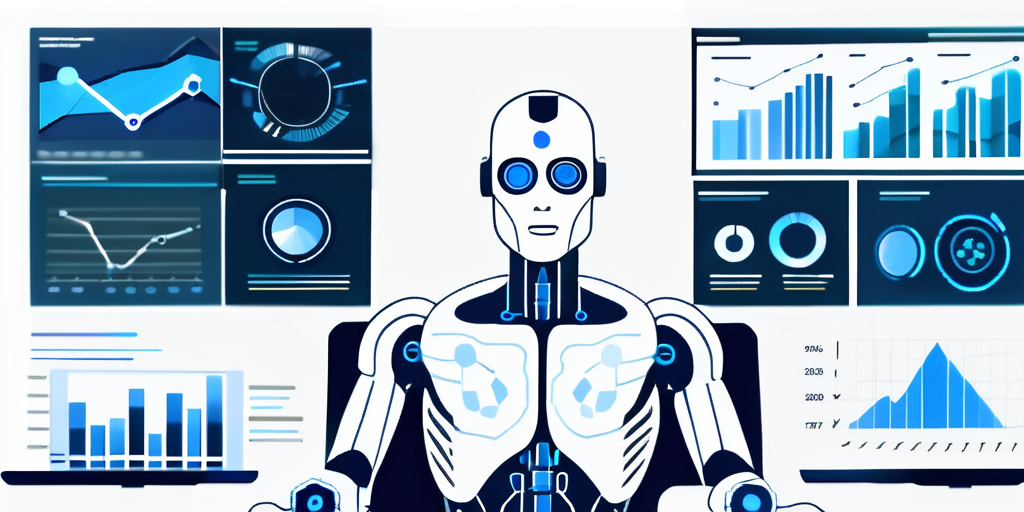In today’s rapidly changing healthcare landscape, the role of the receptionist is undergoing significant transformation. With the rise of high-deductible health plans and the increasing demands on reception staff, artificial intelligence (AI) is emerging as a powerful tool to redefine and enhance the role of these key healthcare professionals.
Understanding the high-deductible era
Before we delve into the impact of AI on receptionists, let’s first understand the high-deductible era. In recent years, there has been a significant shift in healthcare insurance plans, with more individuals being enrolled in high-deductible health plans. These plans require patients to pay a larger portion of their healthcare costs out of pocket before insurance coverage kicks in. As a result, patients have become more financially responsible for their healthcare decisions.
The high-deductible era has brought about a fundamental change in the way healthcare services are accessed and paid for. Patients are now faced with the challenge of balancing the need for medical care with the financial burden of high deductibles. This shift has not only impacted individual patients but has also had wider implications for healthcare providers and the industry as a whole.
The rise of high-deductible health plans
According to recent statistics, the number of people enrolled in high-deductible health plans has been steadily increasing. In fact, by 2024, it is estimated that more than half of all employer-sponsored health plans will have high deductibles. This shift has had a profound impact on the healthcare industry as a whole and has created new challenges for receptionists.
As high-deductible health plans become more prevalent, healthcare providers are finding themselves navigating a complex landscape of insurance policies, coverage options, and patient financial responsibilities. Receptionists play a crucial role in helping patients understand their insurance benefits, navigate the complexities of high deductibles, and make informed decisions about their healthcare. This shift towards high-deductible plans has highlighted the importance of clear communication and financial transparency in healthcare settings.
Impact on the healthcare industry
With the rise of high-deductible health plans, patients are becoming more cost-conscious and are seeking greater transparency in healthcare pricing. This has led to an increased demand for information from reception staff, who often find themselves fielding questions about pricing, coverage, and financial assistance options. Additionally, receptionists are now tasked with managing the collection of patient payments and ensuring accurate documentation of patient financials.
Furthermore, the shift towards high-deductible health plans has prompted healthcare providers to reevaluate their billing and payment processes. Receptionists are now required to have a deeper understanding of insurance policies, billing codes, and payment procedures to effectively support patients in navigating the financial aspects of their healthcare. This evolving landscape has underscored the importance of training and support for receptionists to ensure they can effectively assist patients in understanding and managing their healthcare costs.
The traditional role of the receptionist
In the past, the role of the receptionist primarily revolved around greeting patients, scheduling appointments, and managing administrative tasks. While these responsibilities are still important, the evolving healthcare landscape has necessitated a reevaluation of the traditional receptionist role.
One key aspect that has become increasingly important in the role of a receptionist is the need for empathy and understanding when dealing with patients. Patients often come to healthcare facilities feeling anxious or unwell, and a receptionist’s ability to provide a welcoming and reassuring presence can greatly impact the patient’s overall experience. This emotional support can make a significant difference in how patients perceive the quality of care they receive.
Key responsibilities and challenges
Receptionists play a vital role in ensuring the smooth operations of healthcare facilities. From managing patient flow to handling phone calls and inquiries, they are often the first point of contact for patients. This requires excellent communication and multitasking skills. Additionally, receptionists are responsible for maintaining patient records, verifying insurance information, and coordinating with other healthcare professionals. However, the increasing demands and complexity of these tasks can be overwhelming, especially in the high-deductible era.
Another challenge that receptionists face is the need to adapt to technological advancements in healthcare. With the integration of electronic health records and online appointment scheduling systems, receptionists must continuously update their skills to navigate these digital tools efficiently. This shift towards digitalisation not only streamlines processes but also requires receptionists to be adept at troubleshooting any technical issues that may arise.
The evolving demands on reception staff
As patients become more engaged in their healthcare decisions, receptionists are now expected to provide a higher level of customer service. This includes addressing patients’ financial concerns, explaining insurance coverage and out-of-pocket expenses, and assisting with the navigation of the healthcare system. Reception staff must also stay up to date with changing regulations and policies to ensure compliance and accuracy in their work.
Furthermore, in light of the current global health crisis, receptionists have taken on additional responsibilities to ensure the safety and well-being of both patients and staff. This includes implementing strict hygiene protocols, conducting health screenings, and managing appointment schedules to adhere to social distancing guidelines. The role of the receptionist has evolved to encompass not only administrative tasks but also a crucial role in maintaining a safe and efficient healthcare environment.
The advent of artificial intelligence in healthcare
With the rapid advancements in technology, artificial intelligence has emerged as a game-changer in the healthcare industry. AI has the potential to revolutionize not only clinical practices and diagnostics but also administrative tasks, including those traditionally performed by receptionists.
Artificial intelligence in healthcare is a fascinating intersection of cutting-edge technology and life-saving practices. The integration of AI systems into medical settings has opened up a world of possibilities, from improving patient outcomes to streamlining administrative processes. The impact of AI is not limited to just one aspect of healthcare but rather permeates through various facets, enhancing efficiency and effectiveness.
An overview of AI in the medical field
AI refers to the development of computer systems that can perform tasks that would typically require human intelligence. In healthcare, AI is being used to analyze large amounts of patient data, improve diagnostics accuracy, and even assist in surgical procedures. However, the applications of AI extend beyond clinical settings.
One of the most promising applications of AI in medicine is its ability to sift through vast amounts of patient data to identify patterns and trends that may not be immediately apparent to human healthcare providers. By leveraging machine learning algorithms, AI systems can assist doctors in making more accurate diagnoses and creating tailored treatment plans for individual patients.
How AI is transforming administrative tasks
AI-powered chatbots and virtual assistants are increasingly being adopted in healthcare facilities to handle patient inquiries, schedule appointments, and provide basic medical information. These AI assistants can quickly respond to patient queries, freeing up receptionists’ time to focus on more complex tasks. With the ability to learn and improve over time, AI can automate routine administrative processes and provide patients with more efficient and personalized support.
Moreover, the implementation of AI in administrative tasks not only enhances the patient experience but also contributes to the overall operational efficiency of healthcare facilities. By automating repetitive tasks and streamlining workflows, AI systems enable healthcare providers to allocate their resources more effectively, ultimately leading to improved patient care and outcomes.
Redefining the receptionist role with AI
As AI continues to evolve and become more integrated into healthcare systems, it has the potential to redefine the role of receptionists. By leveraging AI technologies, receptionists can expand their capabilities and provide even greater value in the high-deductible era.
In addition to the practical benefits of AI integration, the use of artificial intelligence in healthcare reception roles also opens up exciting possibilities for the future of patient care. With AI handling routine tasks, receptionists can focus on developing stronger relationships with patients, offering empathetic support, and personalised care. This shift in responsibilities not only enhances the patient experience but also highlights the importance of human interaction in healthcare settings.
AI applications for reception tasks
AI can augment receptionists’ abilities by assisting with appointment scheduling, patient check-ins, and even automating the billing and payment processes. For example, AI-powered voice assistants can handle appointment confirmations and reminders, reducing the burden on reception staff. Chatbots can efficiently answer common patient questions, provide educational resources, and direct patients to appropriate services. These AI applications not only improve the patient experience but also allow receptionists to focus on more complex and interpersonal aspects of their role.
Benefits of AI for reception staff and patients
The integration of AI into reception tasks can have numerous benefits for both reception staff and patients. AI can enhance efficiency, reduce administrative errors, and streamline workflow, allowing receptionists to allocate more time to patient care. Patients, on the other hand, benefit from quicker responses to inquiries, convenient appointment scheduling, and improved access to healthcare information.
Furthermore, the use of AI in reception roles can also contribute to data-driven decision-making in healthcare facilities. By analysing the data collected through AI interactions, healthcare providers can gain valuable insights into patient preferences, trends in appointment scheduling, and areas for service improvement. This data-driven approach not only benefits individual patients but also supports the continuous enhancement of healthcare services on a broader scale.
Preparing for the future: Receptionists in the AI era
As AI continues to shape the healthcare industry, receptionists must adapt and acquire new skills to thrive in the AI-powered workplace.
Necessary skills and training for the AI-powered workplace
Receptionists can future-proof their careers by developing skills that complement AI technologies. This includes honing their communication and interpersonal skills, as well as gaining a deeper understanding of healthcare systems and insurance policies. Ongoing education and training are crucial for receptionists to stay informed about AI advancements and adapt to evolving industry practices.
The future outlook for receptionists in healthcare
While AI has undoubtedly brought changes to the healthcare industry, it is essential to understand that technology cannot fully replace the human touch. Receptionists will continue to play a vital role in providing personalized care, empathy, and emotional support to patients. With the integration of AI, receptionists can focus their efforts on fostering meaningful patient relationships and addressing complex healthcare needs.
In addition to these important considerations, it is worth noting the potential impact of AI on the receptionist’s role in healthcare. With the ability to analyze vast amounts of data and provide instant insights, AI can assist receptionists in making more informed decisions. For example, AI-powered chatbots can help handle routine inquiries, freeing up receptionists to focus on more complex tasks. This shift in responsibilities allows receptionists to expand their skill set and take on more strategic roles within the healthcare setting.
Furthermore, the integration of AI technologies opens up new avenues for collaboration between receptionists and other healthcare professionals. By working alongside AI systems, receptionists can leverage the power of machine learning algorithms to enhance their decision-making processes. This collaboration not only improves the efficiency of administrative tasks but also enables receptionists to provide more accurate and tailored information to patients.
In conclusion, the role of the receptionist in the high-deductible era is being redefined with the introduction of AI. As patients navigate the complexities of healthcare costs, receptionists are at the forefront of providing information and support. By leveraging AI technologies, receptionists can streamline administrative tasks, improve patient experiences, and enhance their own capabilities. As we move forward into the AI era, receptionists must embrace the opportunities that technology presents and continue to provide the compassionate care and expertise that patients rely on.
As we embrace the transformative power of AI in redefining the role of receptionists, it’s clear that the future of healthcare is here. At Clinic Marketing, led by Angelo Rosati, we understand the pivotal intersection of healthcare, marketing, and artificial intelligence. With a commitment to excellence and a proven track record in health tech, we’re ready to partner with you to elevate Your Clinic to new heights. Don’t let the potential of AI pass you by. Book a Call with Us today, and together, we’ll shape the future of patient care and clinic growth.




